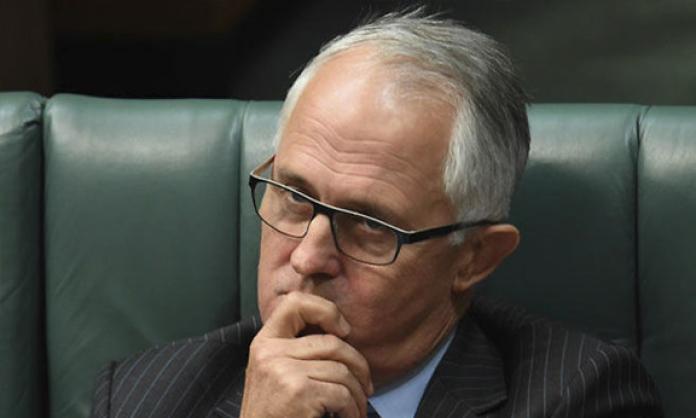Malcolm Turnbull is trying to kill me.
It’s not a longstanding vendetta dating back to when he was head prefect and I was a year behind him at Sydney Grammar. We got on okay then.
Actually, it’s nothing personal. Like Liberals back to Bob Menzies, Malcolm has it in for public health care.
At the Canberra rally against attacks on Medicare and the proposed charges for diagnostic service (this Saturday, see below for full list of demonstrations), I’ll be speaking about my experience of the public health system and the implications of the government’s cuts.
The Liberals resent public spending on health, funded through taxes, because it diminishes the money their main backers can pocket in profits. And particular corporations in the “health business”, especially drug companies and insurance providers, fight to make sure their profits continue to flow.
In the late 1940s, Menzies campaigned against Ben Chifley’s Labor government not only to defend private banking but also to defend private health care. The Liberals supported constitutional challenges against Labor’s bank and health legislation. Prime minister Menzies in 1960 ended free medicines under Chifley’s Pharmaceutical Benefits Scheme (PBS), which had survived the conservative High Court’s ruling against broader public health legislation.
Gough Whitlam’s Labor government legislated for universal public health insurance – Medibank, now called Medicare. It was second rate, compared with Chifley’s model or the British National Health Service. People have experienced better and, as a proportion of Gross Domestic Product, cheaper health services than we have in Australia, under the NHS.
But compared with the situation before, Medibank was a big improvement and the vast majority of people embraced it. For anyone on a low or modest income, who is sick or may become ill, Medicare is a barrier against poverty, greater suffering and even death.
Like millions of others, I have benefitted from Medicare and PBS. The treatments I have been through in Canberra Hospital for Multiple Myeloma don’t come cheap. In the United States – the health delivery model for the Liberals – they would have cost hundreds of thousands of dollars.
That wouldn’t be a problem for someone like Malcolm Turnbull or the rest of the tiny, wealthy and very powerful layer of society whose interests, as investors, governments generally promote.
But for the rest of us, Medicare and the PBS, funded through the taxation system, are crucial. The end of bulk billing for diagnostic services alone will discourage people from having blood or urine tests, pap smears, x-rays, MRI’s and other important services.
The standard of care I experienced was generally very high. Deficiencies can be directly traced back to underfunding and one of its main consequences: nurses, doctors and other staff who are overworked.
I still have to have monthly intravenous doses of a drug to maintain my bones and, on average, around four pathology tests a month.
There was more evidence of the cuts in public health spending, as the cannula was going in to administer of the drug last Friday. A man appeared with a portable point of sale terminal. He asked me to cough up the PBS copayment for the drug. Over the previous three years there had been no charge for this drug. Now I’ll have to pay more than $450 a year.
In Australia, the latest drugs to treat Myeloma and many other illnesses are unaffordable for most of us. There are two reasons. The PBS is starved of funds. And the Australian government “respects the right” of pharmaceutical corporations to make tremendous profits through huge monopoly prices.
In 1976 the other Malcolm, the other very wealthy Liberal prime minister Malcolm Fraser, moved to undermine Medibank, soon after taking office.
In response to Fraser’s attack, there was a strike in Wollongong, a ban by postal workers on literature justifying the government’s position, a 24-hour general strike across Victoria and then a very solid national one-day strike. Largely thanks to the efforts of Bob Hawke, then the president of the Australian Council of Trade Unions, the campaign petered out and it became possible to opt out of Medibank by taking out private insurance.
Last year, public outrage prompted the Senate to block Tony Abbott’s attempt to make visits to the doctor more expensive. Hospitals are being starved of funds.
Rallies and union action can stop the Liberals’ latest assault on our health, in the form of Turnbull’s diagnostic services charges and now moves to privatise parts of Medicare’s administration.
RALLIES AROUND THE COUNTRY ON SATURDAY 20 FEBRUARY
Adelaide: 1pm Parliament House
Brisbane: 1pm Queens Park, cnr Elizabeth and George St
Canberra: 1pm Petrie Plaza, Civic
Melbourne: 12pm State Library of Victoria
Newcastle: 1pm Town Hall, 290 King St
Perth: 10am Murray Street Mall
Sydney: 1pm Town Hall, George St









